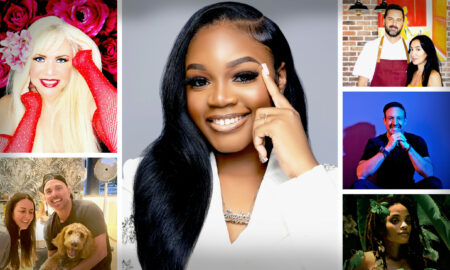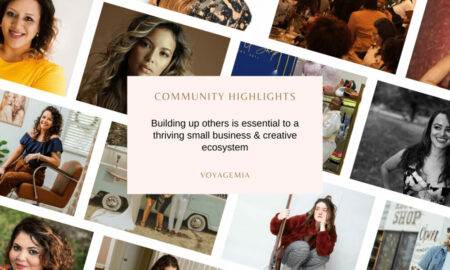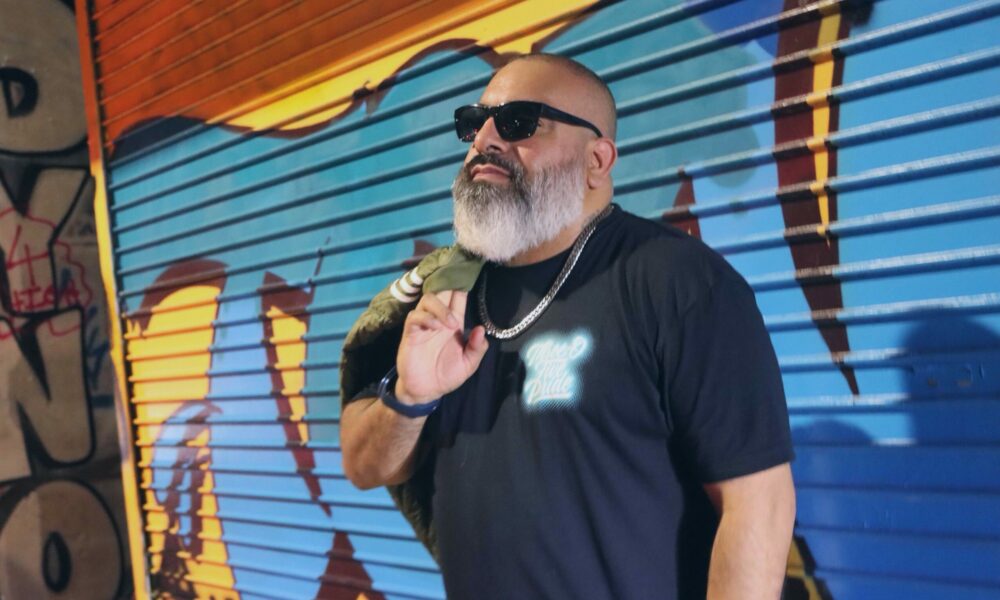

Today, we’d like to introduce you to D’shon El Villano.
Hi D’shon, thanks for joining us today. We’d love for you to start by introducing yourself.
Well, I was born in Miami in the 80s. I grew up in Miami and in Colombia between Barranquilla and Bayar, and then I came back to Miami when I started high school 10th grade in high school. My mother and father are from Columbia, and I was born here as the first generation of the family to be born in Miami, along with my siblings.
I guess I started with music when I was a kid. I loved all kinds of music that my family was listening to, whether it be Salsa, Vallenato, or Merengue. My brother and sister and my other cousins were listening to hip-hop, so I was kind of getting into all kinds of music, and by the time I was able to ask what kind of music I wanted to listen to, it was a little bit of everything. I discovered my love for hip-hop when I was about six or seven, and since then, it’s just been, you know, culture has been in my life.
Musical.Ly I always had an obsession with, or at least as a kid I had a huge obsession with, Michael Jackson, and I guess that made a huge impact on me growing up, and I guess it impacted my vision and my goals in retrospect now that I look at it, it’s I guess that’s the way it is. Ever since I discovered that I love to rap, I knew that I wanted to rap in Spanish. It was different and made me feel different, and I saw that the reaction in people was incredible, so that’s why I stuck with making Spanish rap.
I’ve been making music ever since 1999, the year that I also got shot and almost died. I used to live in the streets as a kid as a young person, and I always thought that I wouldn’t live past 21 years of age. Sure enough, I almost died when I was 19 f*cking around with the gang and, you know, just doing street stuff. I was never a gang member, but I was always affiliated with it. You know, my so-called friends who were, and it was always kind of part of me hanging out, making money in the street was always around that guy that gang mentality and violence.
That’s why when I got shot, no one was surprised. I thought that I was going to turn my life around right after that, but I kept on getting shot. It kept on, you know, bullsh*t, and one thing that I did change, well, I changed the priority that I had in my life, and I kind of made it first before anything. After surviving, I figured I was going to be the best at what I do, so I started recording and writing every day, filled up notebooks, and went to the studio as much as I could, and little by little, I started learning about tools and plug-ins and making myself more familiar with what was going on in the studio.
Until I decided to go to school, and then I went to school. I think doors kind of opened up in a different way in my life. I think that where I am today has a lot to do with the fact that I went to school because of the lifelong networking contacts that I made. It made my life take another direction; I think. After school, I finally decided to take music completely seriously and kind of leave things behind. By the time I started music, I had already started having children.
I had a child out of wedlock, and I started raising my daughter by myself because my baby mother left us when she was a few months old. It was hard, and it was weird, but I got a grip on things, I think. Two years later, after my daughter being born, I met the woman who would be the woman of my life I think finding my current wife back then also saved me from a lot of things that I might’ve done in the street.
Then, I became a father again, but I always had music in the background. I was always creating and making connections, and just even though I was a father, you know, when I had responsibilities, I was keeping music always on the surface level and always within an arm’s reach, and I feel that if I wouldn’t have done that, I would’ve lost it I would’ve lost my mind.
In 2012, I started putting out music on my own using social media or with the help of the people that I knew on social media who were dedicated to promoting Spanish hip-hop. We would put on music every Friday and call it Villano Viernes. With the help of the promoters whom I had befriended over social media, who were in Chile, Peru, Venezuela, Colombia, and Mexico, they helped me promote my music to an audience that, honestly, I didn’t even know existed before I got into promoting my music that way.
After a while we were very successful and I believe it was about four years in, every Friday, putting out new music, we got a chance to get a distribution deal to monetize my music. It seems like a great idea I was going to be able to put my music on you know all the distribution platforms which were new back then Spotify apple music they were taking off, but it was a new experience for me because up to this point, I had not been able to monetize my music. I was given it out for free every Friday, so we aren’t dealing with empire distribution, and nine years later, here we are.
I currently work with incredible professionals and incredible people. We’ve built an incredible team. I feel so blessed, to be honest, to have a team that works and that is recognized and respected in the industry. Working with grammy winning producer-engineer Immanuel Ramirez, A.K.A. Ima305, the legendary DJ Epps, working with one of Colombia’s most talented engineers and producers, dress, and, of course, my wife, the mega-talented photographer and visual artist, we have an incredible team now.
I’m currently working on different projects, including an album that is soon to be dropped. I don’t have a date yet, but we are working on that, and I feel like time is of the essence for this project.
Can you talk to us about the challenges and lessons you’ve learned? Looking back, would you say it’s been easy or smooth in retrospect?
It hasn’t been easy, but at the same time, I find myself incredibly blessed from the very start of my career. I started off by being supported and groomed in a way to be a better rapper by a Grammy-winning hip-hop group, Sindicato Argentino del Hip-hop. At the same time, working with a platinum producer nominated platinum record producer, Denis D. Menace Nieves, was an incredible experience for me because, on the one hand, I got kind of like the knowledge of being with Grammy Winnie rappers, you know that had a lot of experience and at the same time working in the studio, officially with a professional and getting to learn some of the tricks of the trade.
In 1999, I was living in Miami, and I found that there wasn’t too much support for Spanish hip-hop. There were a few rappers in Miami doing the thing, a few crews doing the thing, but nobody was really looking out to help somebody who they didn’t grow up with, and that’s the way Miami is, Miami is just, you know full of gatekeepers, so I left to Mexico City in 1999 looking to expand my Spanish hip-hop horizons and sure enough I did I got with very influential people in the rap came in the city and I definitely made some lifelong friends definitely keep in contact and to this day admire at the same time in the end, the flipside of that was that I didn’t stop the street sh*t you know even though I was Mexican in a foreign country in the foreign city.
I knew pretty much nobody was out there doing my thing. I was out there tugging, and, you know, I associated with the bangers and criminals. You know, I put myself in certain situations where I ended up getting shot, and it was something that I guess I brought myself. Still, it was also almost self-prophecy because I had told myself that, and I told the world that I wasn’t going to last beyond 21; that was just a lifestyle I was living then. Surviving that shooting put things into perspective but, at the same time, kind of entrenched me a bit more in my way and put my dream of making music never ending and never stopping. If it became a real resolve in my life, it would become something I was. I felt that I was destined to achieve.
When I came back to Miami later in 1999, by November, I was getting back up on my feet. I was writing again. I was very depressed, but I was still making music, I was still writing, and I was still trying to get into the studio and do a couple of things. I had so much in my heart and in my mind that I wanted to put it in, but I didn’t know where to begin.
I had a good friend who taught me so much: shut out the dragon and the dragon layer, La Guarida del Dragon, working with a dragon in his little apartment, and his little home studio taught me a lot about being in the studio about writing in the studio about creating about holding my craft and learning about so many other things of course at the same time in the Miami street live through my thing 152 and sunset 152, and Kendallit was it was a strange time looking back at it, but it was something that definitely made me who I am today.
As early as 2001, I was featured on an incredible project coming out of Spain called Rap Latino. I believe the year was actually 2003, and I had the great fortune to be featured in this international compilation where some of the people who I knew from Mexico when I went to Mexico in 1999 I was able to be part of something that was what was you know full of different artist I had a huge name in Latin hip-hop. My brothers from Sindicato Argentino made an appearance at Sociedad Café featuring Jimbo, Full Nelson, and many others. At that time, being featured in an accommodation on a CD compilation of Spanish rap was a huge thing, and it was a huge deal for me, of course.
In 2005, I decided to put out my first album named El Disco Verde; back in those days, I still had that mentality that there were no opportunities for me or the opportunities were slim even though right after I put out my album or actually right before I put out my album, there was a huge boom, and reggaeton and the artist like daddy Yankee, Don Omar, Tego Calderón, Ivy Queen, all got very popular. In a way, my album was strategically produced and put out to benefit that boom of reggaeton in Miami, but people were still not supporting it that much. It was a little bit more popular. There were more Spanish rappers, but no Rio Support System, no real movement unless you were wrapped in English, and you were butt buddies with the “popular” crowd.
After I put out the album, I started getting invitations to go back to Mexico to perform, so I went back. You know, I was a little bit fearful about what would happen to me over there, but trusting the music and vibes, I went out there again, and it was a great success. I met my future wife out there, so it was definitely a huge success, I started putting out collaborations more music a couple singles here and there it was a little. It was a little hard because the digital landscape wasn’t what it is today. The concept of CDs and digital platforms was very new. I was promoting my music through my space like everyone else. That platform helped millions of others, and I put out the music and met new people. It was definitely a hub for artists who were very much like me and dependent and kind of putting your putting everything out on their own with no budget to be heard.
In 2011, I got this idea that I would start putting music out for free every Friday and a new song, and I started kind of masterminding the whole thing with my future wife, Diragga. One of the main ways that we were promoting this music was through different social media promoters, especially on Twitter and Facebook. These people would promote music daily, Spanish hip-hop to be specific, and they would promote it. I would start meeting them and creating, you know, kind of like a rapport with them all the way, Miami and through social media, of course, and you know, if it was something that I kind of put together my head and I said if we would have like one platform that we can jump off of, we can do this Villano Viernes thing which is what I called it.
We can do this really professionally or really organized. Yeah, I think that’s a better word organized. In 2012, I renamed a website back in those days called ak-47, full and ideal, and I did a deal with them where every Friday they would put on my music, and we would promote that link, and things were just they just went gangbusters, us. It was an incredible response, and for the next 4 to 5 years, we put on music every Friday. Every Friday was a huge challenge. Sure, we missed some Fridays, but our overall output was, you know, 45 a year, 50 a year, and we would get up to 60,000 downloads on each song, 80,000 downloads on each song. It was really incredible. It just wasn’t monetized.
The truth is that monetization never really ran through my mind like that, even though it should’ve been my first, you know, go-to thing, I guess, but my first go is how do I get this into the hands or into the ears of the people?
After a few years doing the Villano Viernes thing and looking at the fact that in Miami, there was no support for what I was doing, and really, unless I was like kissing ass or went to high school with these, you know, people who had a position in the Miami hip-hop scene, it wasn’t going to help me out it wasn’t going to work with me you know so the doors were completely closed or at least that’s the way that I trained myself to think and look at things was that there were no opportunities but you know something funny happened during the Viernes and that whole thing taught me that it’s not really about the opportunities there are out there even though that is important, it’s more about the opportunities that you make for yourself and once I flip that switch in my head and I stop looking at things as if there was no opportunity and it was more about the opportunities that I could make for myself.
It was a whole different ball game. I started working at another level, and it coincided with the fact that a good acquaintance of mine put me in touch with Empire Distribution, which was the start of another chapter in my career. Now, I was faced with another huge challenge, which was how I changed my audience, which used to give them free music. Here’s my music. Buy it from Spotify, Apple, or wherever. How was I supposed to create that changeover? We decided to do it little by little. At first what we did was we kept on putting out free music, but we chose certain singles to put it out through the distribution the monetized distribution.
It was rough, it was really rough, but eventually, we started making a little bit of money. Another thing I did was I offered my distribution to all the people whom I had been collaborating with for years putting out this free music, so I became kind of a record label to others in the sense that I was putting out the music more like a distribution right well like a distribution to others and yeah, a bunch of my colleagues that were working with me from chela from Peru from Colombia from Mexico they jumped on the distribution. You know, most of them weren’t really good quality or even covered, but we did what we could over here for them.
We mixed some of the songs we would design covers for them and put them out, so at the beginning, really, the quality was low, but we were putting stuff out. We were out there, and I kept on improving the quality of the music and eventually I got to a place where I was very happy, or you know I was definitely content with the quality, so I decided to put out my second album. Nine years between my first two albums I know it sounds crazy, but the truth is that between those two albums, I put out hundreds of songs for free and to be honest it wasn’t a big deal to me at all like at all. My second album was completely produced by one producer who made all the beats, made all the arrangements, and did all the mixes. Uly KPB, rest in peace, brother.
It’s hard to listen to. It’s great music, some of my best, but it was so hard when I found out that Uly had passed. I didn’t wanna make music for a while. I was depressed, I was lonely, and even though I wasn’t alone, I felt lonely. You were such an involved friend. We made music together, but we spoke to each other constantly, and it was just a hard thing, but I got back on my feet, and I kept on hustling. By this time, I was focused on making better music, higher-quality music. I never looked at it as if I needed to make rap music or reggaeton music. I always look at it like I need to make music. I want my soul to speak through the things that I put down and what you hear coming out of the speaker.
I decided to go back to working with my ex-professor from school ima305. We did a project back in 2012-2013 from a deal that I had gotten approved from in Massachusetts. They gave me the production budget, and I was able to pay Ima305 for the production, and we went in. Unfortunately, it didn’t pan out because after the songs were done, the budget to put out the music never came, so we were stuck with we couldn’t put out a great, by the way, great production, the utmost quality, and it was just shelved. I suppose I could’ve put it out on my own, but right to the music wasn’t only mine. I had to share it with two other people, and I didn’t want to, so I would rather not put out the album. In any case, I went back to working with Ima305, and we built a friendship that evolved into a partnership that evolved into an even bigger, better friendship, which is pretty dope.
Around the time that I went back to work with Ima305, which coincided with me having the distribution, I started working with a local radio station in Miami called Dagr8fm. Ever since then, I’ve been working with them and creating their platform. I’ve become a partner there, and to have equity in such an important organization and business means so much to me.
Fast-forward about nine years later which is today Miami still has a lot of that gatekeeping a lot of fake love and real hate but overall, it’s not about the opportunities are available to you sometimes it’s definitely about the opportunities that you can make for yourself and that’s my game. I’m so blessed to be working with people who support me, who see my vision and whose vision I can support, and I believe in too.
Thanks for sharing that. So, maybe you can tell us more about your work next?
I create music, I create content, I create opportunities. As far as music is concerned, I rap, sing, compose, and produce. Hip-hop is very important to me. It’s the lifestyle that I live. The culture that I inhabit is very profound. Hip-hop has taught me so much throughout my life, and it’s always been present when I discovered hip-hop discovered me too.
I say all this because being an MC has been my biggest passion. I come from a generation that values lyrics, lyricism, and wordplay flow. It’s weird because these things have always been part of my everyday life. Once I learned how to put it into motion, so to speak, that’s why I really gave it my all and focused on my craft, which is being an MC. There’s a certain pride that comes from watching people, and maybe pride isn’t the best word, but watching people listen and understand and kind of get what I’m saying is it’s a huge reward to what I do watching people from the stage have a good time and react to what you say, and what you do is on stage is very rewarding I live for it.
Throughout the years, I’ve learned many skills that sound funny to say, but if music was the only thing I made, I feel that it would be very limited or my output as an artist would be very limited for sure. I developed a huge liking for Photoshop and Final Cut, and I became somewhat of a visual artist as well. It’s weird because my wife is it is an actual visual heart as she is one of the most talented, if not, the most talented person that I’ve ever met, she has taught me so much about perception in art.
So now I feel that when I sit down and edit one of my videos or another artist’s videos, I feel that I’m really making art, that I’m really making something that people are going to look at, and they’re going to be an ad with they’re going to want to look at it again that’s also how I feel when I make designs, and I’m not the best graphic designer, and I’m not the best editor, but I do my thing lol. Creating opportunities is a mindset. It’s very much about looking around and taking nothing and making something, and that’s what hip-hop has ultimately taught me, and it ultimately taught me how to put it into practice through music.
So, I am now blessed to have the know-how and the ability to offer people, studio sessions, production, composition, and rehearsal space at a professional location that we have in Hialeah through Ima305 Studios. I’m able to offer a platform for artists to get their music out there at a professional radio station that will pay them their royalties. I do that through dagr8fm in north Miami.
And as far as it pertains to me, I get to use these resources in my favor. This is what helped me grow. This is what’s helped me put myself in a position where I’m surrounded by an incredible team. I’m surrounded by people who wanna see them grow. A beautiful thing, life is good, as my brother Oski would say.
How can people work with you, collaborate with you, or support you?
Well, if you’d like to work with me as an artist, or you would like to know about the services that we are able to offer for artists of business to promote themselves and to create content, you can find me mostly on social media Instagram, to be exact at @villanomuzik.
Contact Info:
- Website: https://linktr.ee/villanomuzik
- Instagram: https://www.instagram.com/villanomuzik/
- Facebook: https://www.facebook.com/villanomuzik1
- Twitter: https://www.twitter.com/villanomuzik/
- Youtube: https://www.youtube.com/@villanomuzikvevo
- SoundCloud: https://www.soundcloud.com/villanomuzik/
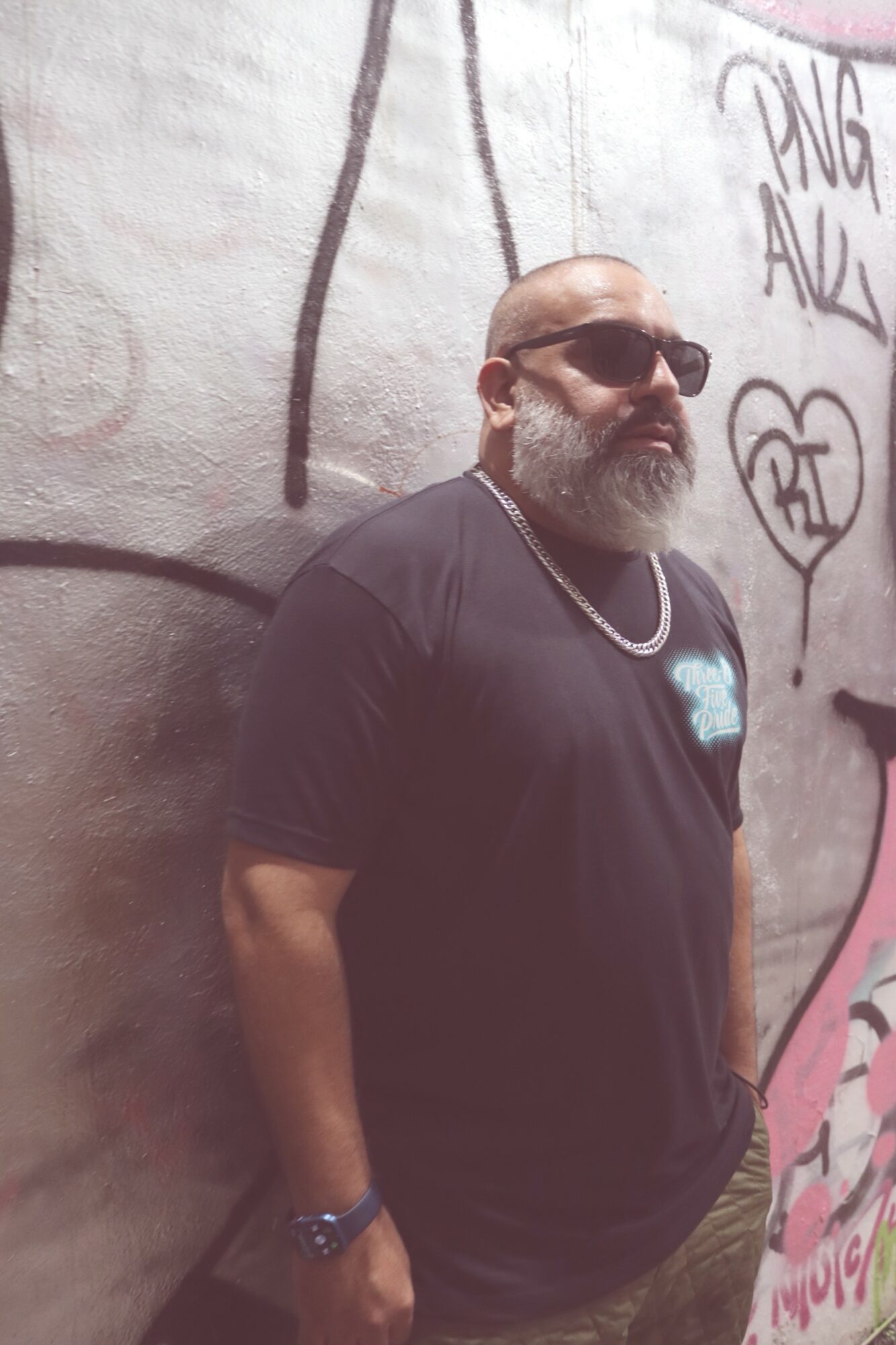
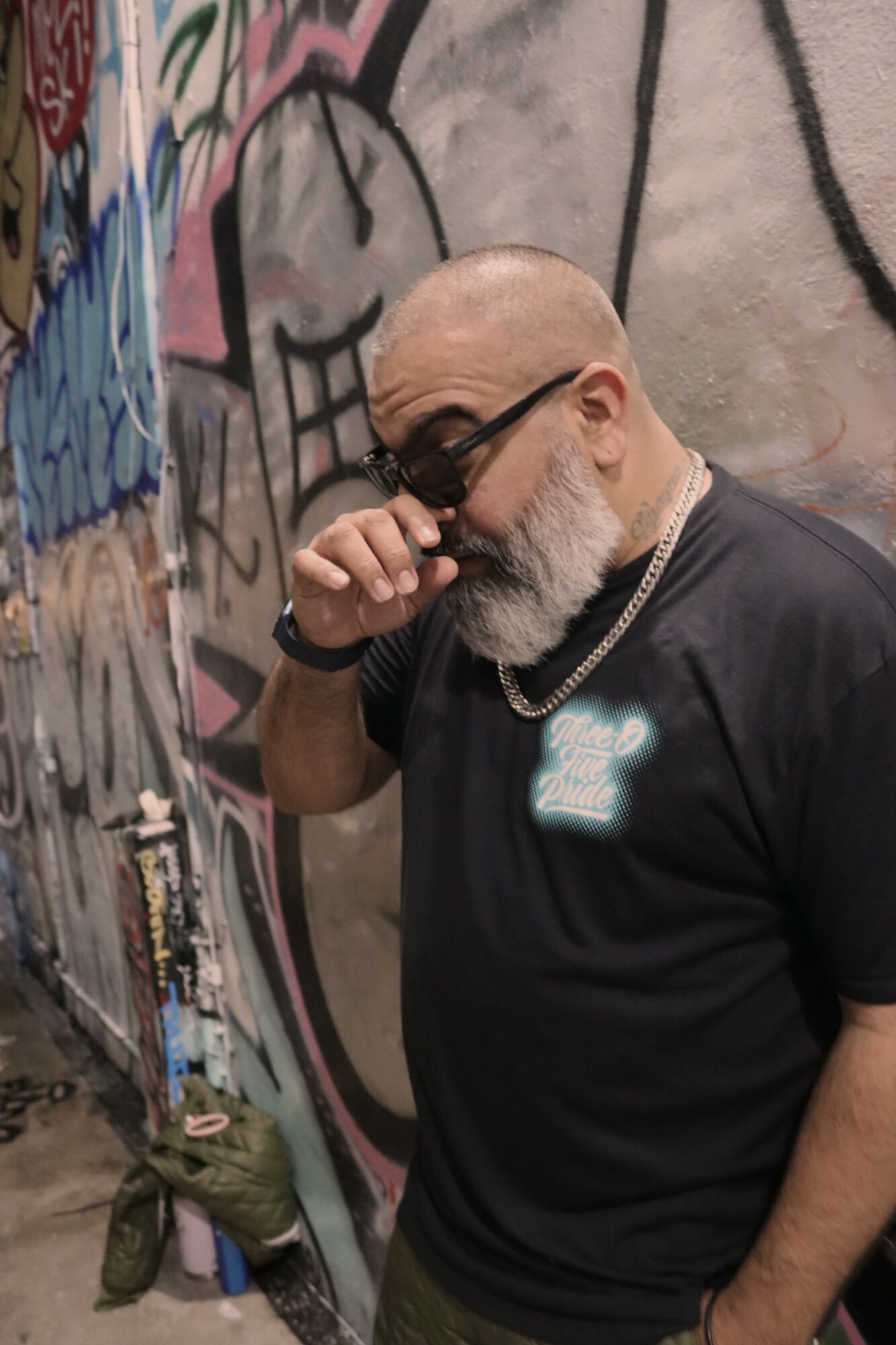
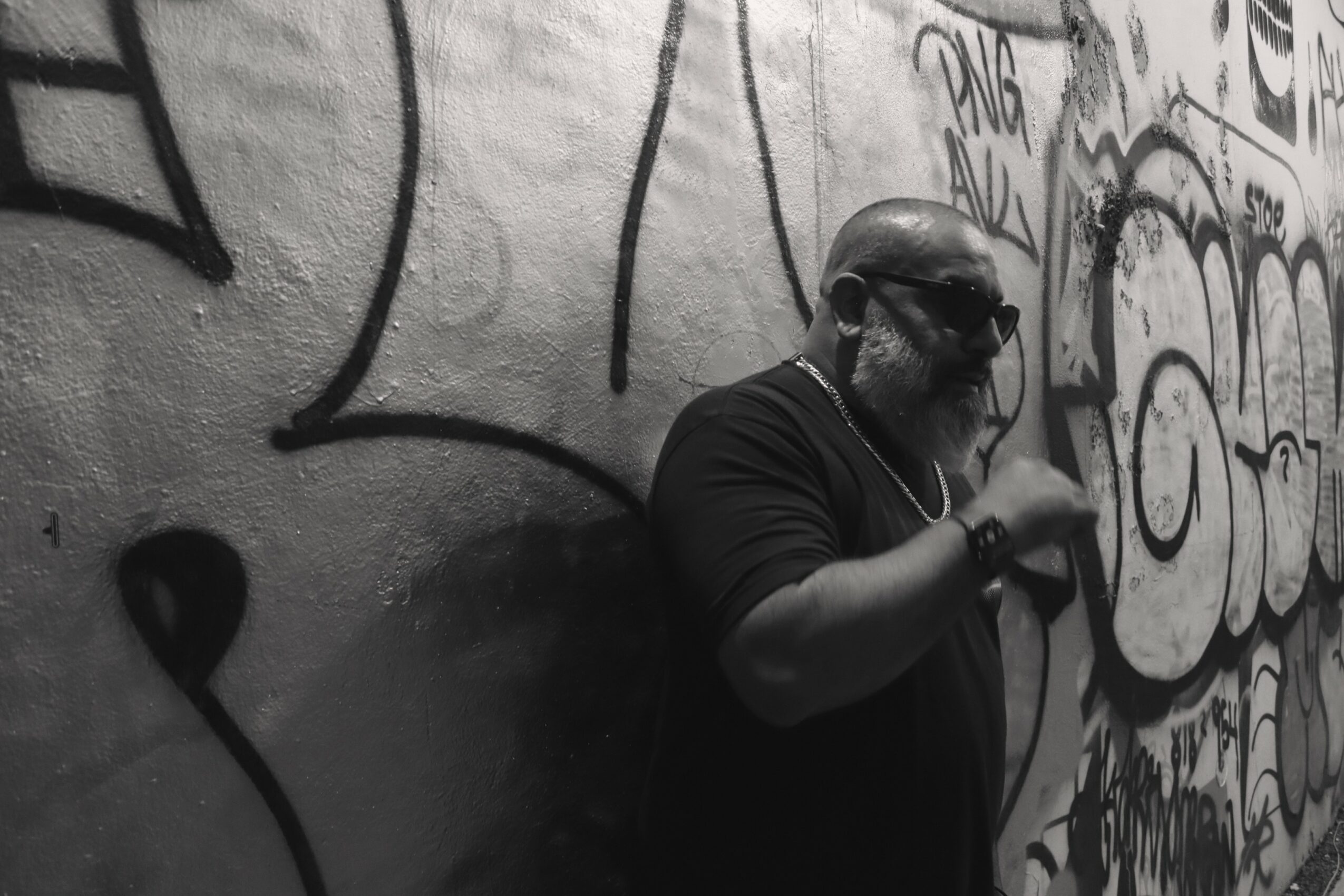
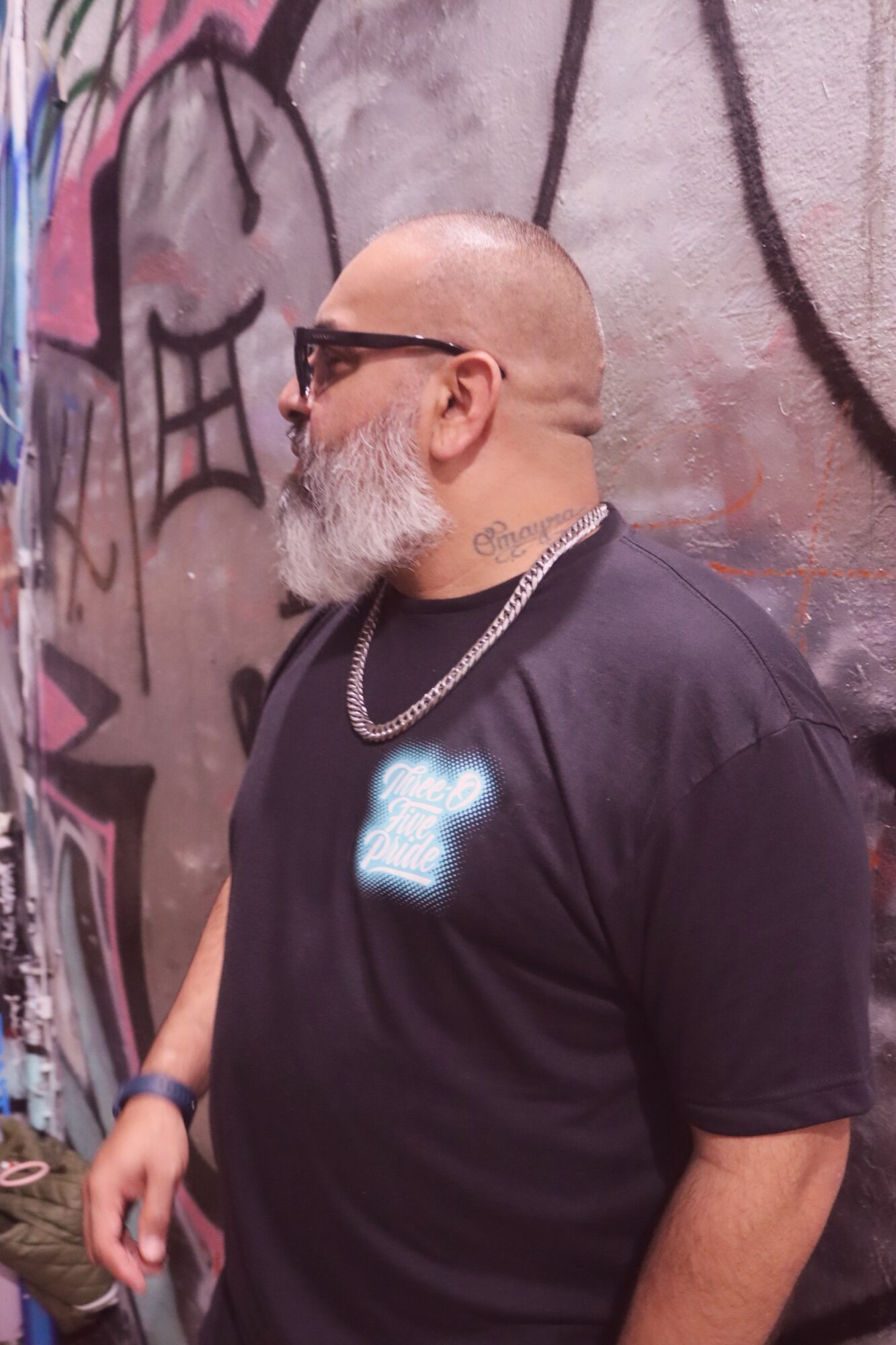
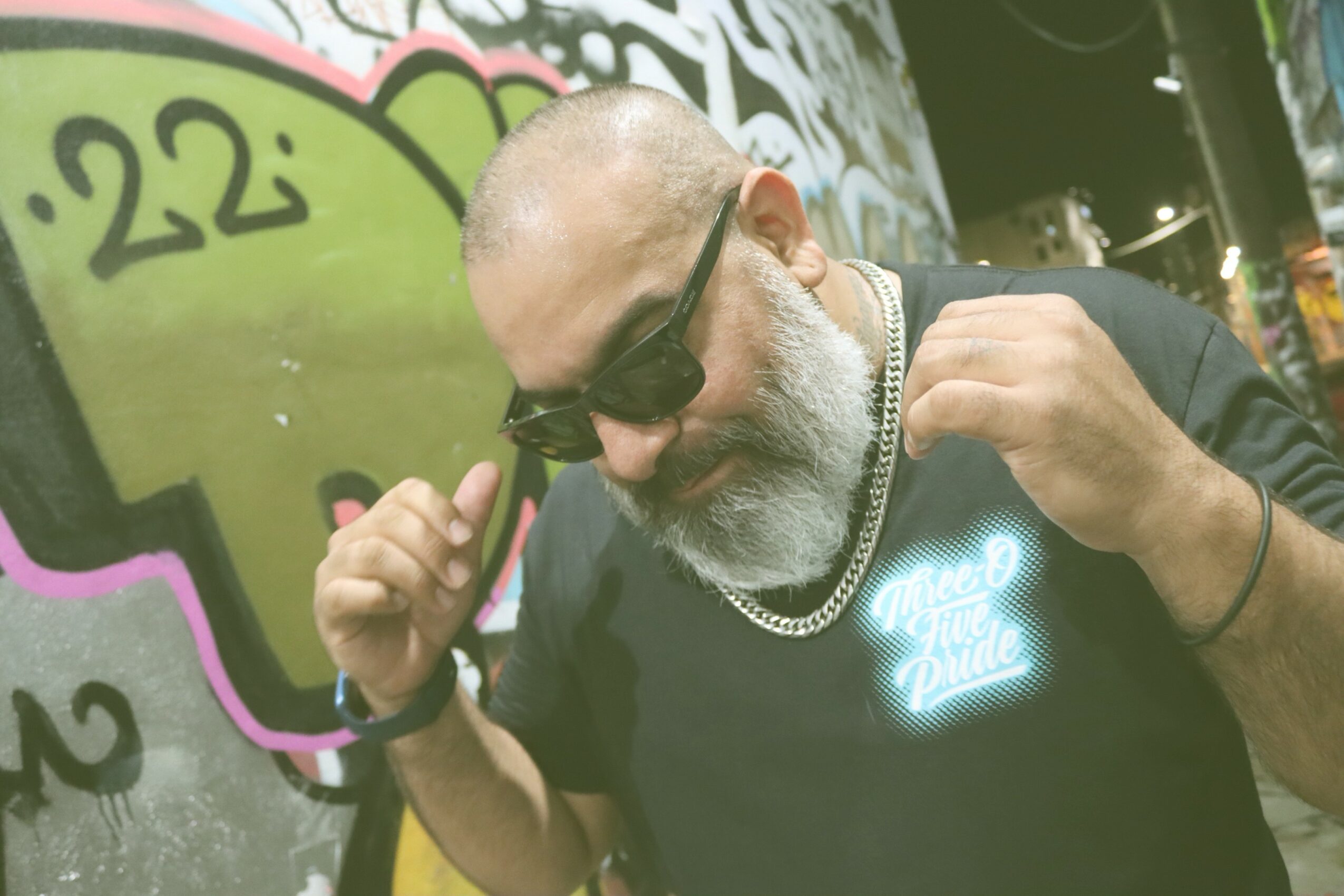 Image Credits
Image Credits
Diana “DiRagga” Sandoval

